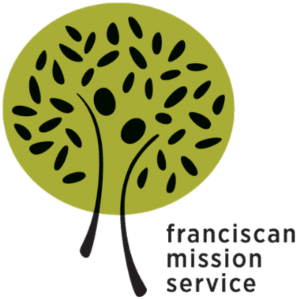“To be consoled as to console” – Leonel and his father

“Leonel is on my mind today. Almost two years ago he pulled me aside after English class, embarrassed and near tears and spoke haltingly. I strained to catch his words: “My father …coming home at night from a community meeting… very dark… fell off the path … far down… paralyzed… I am the only one to take care of him…”
His father had lain in darkness 400 feet down at the bottom of the cliff that night with his feet twisted up over his head. At last someone else, returning from the same meeting, had heard the man’s feeble cry for help. The doctor’s report said that he would be paralyzed from the waist down and that there was nothing they could do. This simple farmer, whose wife had left him years before, now had only his son, Leonel.
The young man was overwhelmed by this role reversal. How could he provide care for his father and still finish his last year at the university? All these months since the accident the father was of course bedridden in his adobe hut. His brother, Leonel’s uncle, came on his way to the fields to feed him breakfast in the morning and again to cook supper in the evening. Lying immobile day and night Leonel’s father inevitably developed bedsores. At one point Leonel determined to take his father to La Paz for treatment and with donations from friends for just such emergencies we collected the necessary funds for such a move.
Some time later Leonel asked me: “Will you come visit my father?” “Of course,” I answered, “but I don’t know when I’ll be able to make the bus trip to La Paz.” “He is in my dorm room,” Leonel replied. The money for medical treatment had run out and the poor man was back from the city.
Leonel showed me to his room in the student living quarters, a room barely large enough for their two cots and a study table. A graduate student had loaned the room to Leonel, otherwise he would have been in the bunkhouse dormitory with the other undergrads. Between classes and work-study assignments Leonel cared for his dad. Adela, Leonel’s girlfriend, set up a makeshift kitchen outside the room and cooked their meals and assisted with the care.
They introduced me to the father – a small man in a baseball cap and rumpled trousers, lying on a thin soiled mattress. A catheter tube trailed from his zipper into a one-liter soda bottle on the floor. The man spoke with me very gently in Spanish as basic as mine since his first language was the Indian dialect, Aymara. He told me that Leonel and Adele were taking good care of him, that they were applying honey to his sores and that he was happy to be with his son.
I asked if I could turn him over to look at the bedsore and found an open wound the size of a dinner plate, so deep that it exposed bone! The torn mattress was wet with blood and pus and the smell was overpowering. How could he be alive with such a raging infection, I wondered.
The next day I returned in the rain with a pickup truck to take Leonel’s father to the small local hospital in Coroico. Some of the students carried him on his mattress and laid him in the back of the truck where we had placed another mattress to “protect” him for the 40 minute ride on the rutted, muddy, winding road to the hospital. He never complained – just smiled and thanked us.
Hospitals in this part of the world usually refuse to admit anyone without payment up front, but in this case the sisters took our patient. They treated him for the better part of a year in a clean bright room that looked out on his beautiful mountain valleys. One of the nurses commented to me that if he died there, at least he would die like a human being – something that often was not the case. She told of visiting elderly “campesinos” (peasant folk) abandoned in remote huts, curled up in their beds, with four inch long fingernails, starving.
Leonel traveled several times each week from the university to visit he father. Despite the medical care he received, the infection had gotten too far. I sent a photo of the huge wound to a doctor in the U.S., who responded that in this country an ulcer of this size would be treated by five different wound specialists and even then a positive outcome would be unlikely.
Here in Bolivia the medicine typically applied to such a sore was simply the natural and available honey. So in spite of good care, Leonel’s father slowly declined and he finally asked his son if he could leave the hospital, go to La Paz and die with his relatives around him.
This represented a problem because in Bolivia no one is released from the hospital until their bill is paid and this bill after all these months was the equivalent of $4,000 – far, far more than Leonel could raise. However, in the end a friend of Leonel’s signed the deed for his home and land over to the hospital to give Leonel another year to pay.
And so Leonel took his father to La Paz and tended to him while the old man said his good-byes. One afternoon, following a quiet conversation between father and son, the elder suggested in Aymara that they both take a short nap. Later Leonel awoke – but his father did not. He knew that now his father was at peace, free of pain – but still he deeply mourned his passing.
Leonel sold his father’s land to pay most of the debt owed the hospital and release his friend’s signed obligation. However, in another of the endless twists of bad news in the lives of people like Leonel, his father’s land had devalued due to a landslide shortly before it was sold. He had to take on extra jobs to finally pay the hospital.
Leonel will defend his bachelor’s thesis in Education this week. Given the opportunity to study and with the encouragement of his now-deceased father, Leonel has worked incredibly hard, overcome overwhelming obstacles and now is close to achieving his dream of being a teacher.
This is life – and death – in Bolivia; love and struggle. I think of Leonel often.”
Tagged in:

